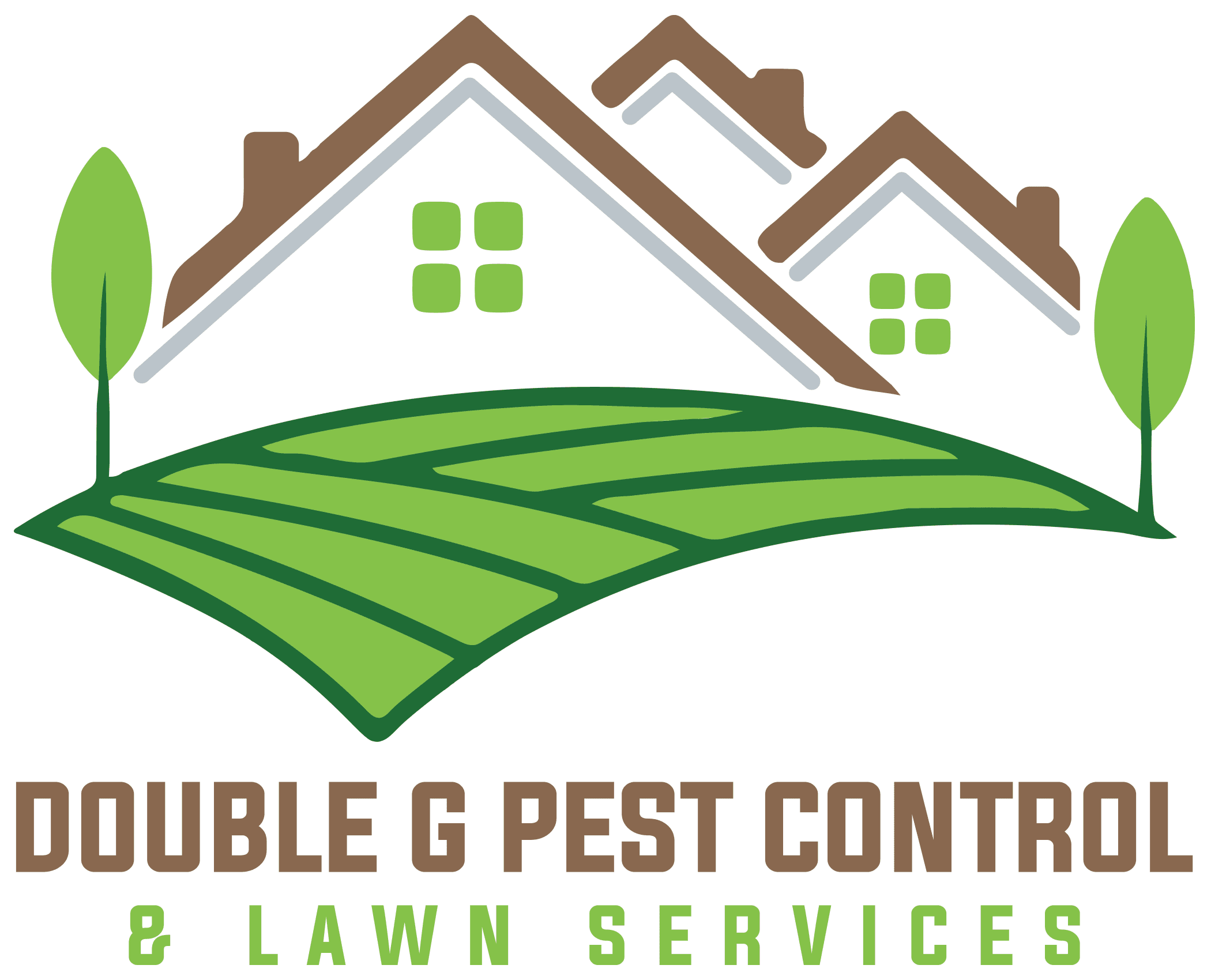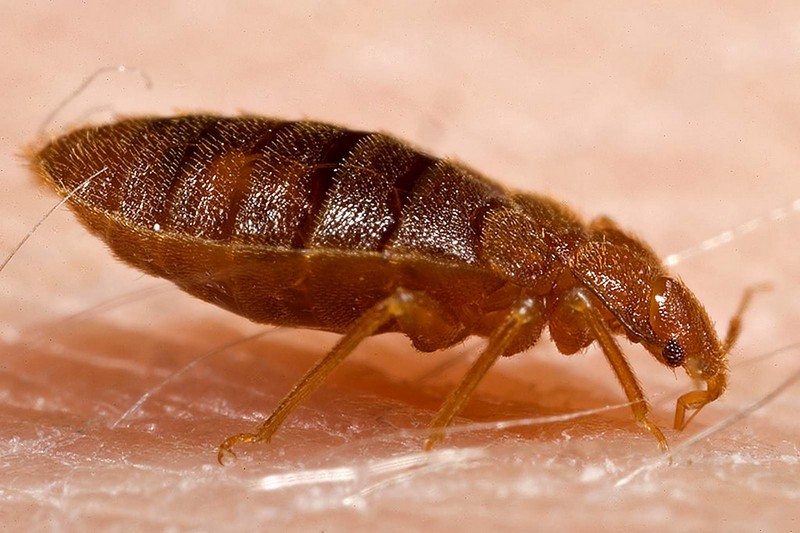Tag Archives for " baits "
Bed Bug Advisory
Bed bugs are on the rise
Bed bug advisory
It is well known that bed bugs have been on the rise in North America for the last 10 years. Numerous research labs are studying this pest to understand bed bug behavior such as feeding, mating, egg laying, maturation and mobility. There are different strains of bed bugs found around the country and each has different levels of resistance to commonly used insecticides. Different strains of bed bugs can take an hour to several hours to succumb to lethal exposure of insecticides used to treat bed bug problems.
Getting a blood meal is crucial for bed bug development and reproduction. Finding and feeding on a host is essential to bed bug survival. All stages of bed bugs use blood as a food source, which they can get from humans, dogs and cats, birds and rabbits.
Bite symptoms typically show on exposed skin surfaces and are often in rows and clusters. Bed bug bites can look like many other reactions. Studies show many people who are exposed to bed bugs will either show delayed or no symptoms at all.
Over the last decade pest management professionals (PMPs) have seen a large influx of products and technologies aimed at preventing and eliminating the bed bug. Commercial pest control service programs aim to protect their residential customers and commercial clients such as hotels, multi-unit apartments, beds, guests and reputations from bed bug infestations.
Bed bug treatment options
There are many treatment options for bed bug infestations. There is no “one right” way. While heat treatment, fumigation, non-chemical approaches, pesticides and IPM can all work, it’s not about what you use but rather how you use it. Pest management professionals have a full tool box of options from which to choose. Concerns over resistance to some insecticides used by PMPs to eliminate these most unwanted pests from homes, apartments, condominiums, hotels and dormitories have arisen. One of the most common infestation sources for bed bugs is used furniture. Not only these places but also public places where people gather in are becoming feeding grounds for these prolific pests. Children from homes were infestations are occurring have been found to be transporting bed buds in their clothing and book bags to schools spreading the bed bugs to more public places adding to more and more public hysteria about this pest.
From a recent article in Pest Control on line, “a University of Kentucky study surveyed more than 2,000 frequent business and leisure travelers to determine their preferences when choosing a hotel and how bed bugs influence their decisions. The report revealed that on average a single report of a bed bug lowers the value of a room by $38 for business travelers and $23 for leisure travelers, respectively. The study also showed the monetary value for travelers’ concerns about bed bugs make it one of the most important considerations when selecting or grading a hotel. This should make hotel general managers and operations directors sit up and take notice because the highly sought-after business traveler represents the potential for multiple stays and is willing to pay a premium price.”
“When asked what they would do if they read an online review of a property that mentioned bed bugs, the majority of both business and leisure travelers responded they would book a room elsewhere.”
Reference: http://www.pctonline.com/article/a-fungus-among-us-that-kills-bed-bugs/
Since the bed bug resurgence started a decade ago, pest management professionals have taken a mostly reactive approach to solving customers’ bed bug problems. In fact according to a survey by Specialty Consultants there was an increase of 11.4% in the number of bed bug jobs complete by PMPs in 2016 over 2015. In the Midwest, bed bugs are now the second highest revenue generating pest for professional pest control companies. Bed bugs are expected to be a $1 Billion dollar annual service by the year 2020. High-rise apartments have been identified as suffering those most severe bed bug infestations.
Baits and sprays have strengths that can complement each other and effectively address both pest prevention and infestation management. Also, use of vacuum or steamer and consideration for the use of mattress encasements and monitors.
Heat is a great way to treat for bed bugs, but it involves a full day of work, so it can be costly. For companies that take an integrated approach to bed bug control they have to be aware of pesticide resistance.
There are numerous approaches to killing bed bugs and if done properly, the problem should go away. To get it done properly, safely and in an environmentally friendly manner businesses and consumers need to hire a professional pest control company like Double G Pest Control. It takes through training, effective control tools and techniques and customer cooperation to get control of this pest and eliminate it.
Best Ways to Stop Your Rodent Problem
Stop Your Rodent Problem
For many, just the word “rodent” is enough to send them running for shelter somewhere high away from those creepy critters. If you have a rodent problem, then you know how disruptive (and downright disturbing) it can be for everyone who lives in your home. Fortunately, rodent issues can be cured if you take proper measures. Want to know how? Here are the best ways to stop your rodent problem:
Identify the rodent problem
Rodent problems are not only limited to rats and mice. In order to treat your problem, you must first determine what you are dealing with. Common pest rodents (besides those previously mentioned) include squirrels, bats, and even raccoons!
Sanitation
This is perhaps the most important thing you can do to keep rodents at bay. A clean house ensures that there are no food sources to tempt rodents in and support their growth and reproduction. All of those dark areas under your kitchen appliances (stove, refrigerator, dishwasher, microwave, etc.) are common food collection areas, and are therefore ideal rodent hangouts. Clean these spaces regularly. Also, be careful not to leave food or drinks out on tables and countertops overnight, and keep your pet’s food sealed in an airtight container. When it comes to the outdoors, clear your property of dead brush, where rodents like to hide, and keep any lumber piles elevated off the ground.
Seal off rodent entry points
Inspect your home for areas where rodents may gain entry. Look for cracks under doorways where weather stripping can be applied, gaps in tile roofs (rodents can actually chew through your roof and gain entry into your home through your attic), cracks in the foundation, and pipes and vents that lead from the outside in.
Rodent traps
For large rodents, you may set up a box trap. Basically, you just set up a pet carrier with a trap door that falls when a lever, inside the box, is tripped by the rodent. For smaller rodents like mice, you can set up mouse traps throughout the home.
Baits for rodents
If your home is host to more than just a few rodents, you may need to bait the rodent population to get rid of them on a large scale. Purchase rodent bait from any chain retailer, hardware, or home improvement store, and then follow the manufacturer’s directions for usage.
If you are not comfortable handling rodent problems on your own, you can choose to put your rodent control into the hands of professionals like us.
Contact us at Double G Pest Control by phone, at 217-440-2847, or email: ggpest1@gmail.com.
5 Residential Pest Control Tips
Residential Pest Control Tips
Pest control is a main concern when it comes to caring for your home and those who live in it. Unfortunately, pests can be extremely perseverant when it comes to gaining entry into your home and taking up residence. To keep pest problems at bay, follow these five residential pest control tips:
Cleanliness
Cleanliness is the most important thing when it comes to prevention. Pests love to feed on the remnants of last night’s (and last week’s, and last month’s) dinner. Clean underneath cabinets, kitchen appliances, and large furniture pieces that serve as crumb shelters. Also, keep your yard free of dead foliage piles, where pests like to hide.
Cutting off points of entry
Pests are very sneaky when it comes to finding entryways into your home. Inspect your home carefully and thoroughly for any cracks, crevices, holes, or gaps where insects and/or rodents may be able to get in, and seal those gaps with caulk.
Good habits
Develop good general habits when it comes to caring for your home, and pest control will happen naturally. For example, don’t ever leave food or drink out at night, as this is sure to tempt pests in. Also, stay on top of your regular home maintenance; things like changing out your filters as needed, keeping your windows and doors properly sealed and weather-stripped, replacing missing roof tiles, sealing off cracks in your foundation, and cleaning the ventilation regularly will go a long way toward pest-proofing your home. Remember that pests thrive in warm, moist environments – which is exactly the type of environment that can also wreak havoc on your home’s structure – so it is a good idea to inspect the basement and attic areas regularly for moisture problems.
Baits
If you already have pests living in your home, then setting up bait traps is a relatively simple and easy way to get rid of your pest problem. You may purchase pest bait at any local retail merchandiser, hardware store, or home improvement store. Simply follow the manufacturer’s instruction for application.
Long-term maintenance
Diatomaceous earth, a powdery substance made from fossilized algae that is completely safe for humans but extremely poisonous for pests, is effective at treating a wide variety of common household pests – from fleas to ants to cockroaches. You may sprinkle diatomaceous earth anywhere you think pests are likely to congregate in order to keep them away on a long-term basis.
Of course, if you are not comfortable with handling your own pest control, you may also opt to put your pest control into the hands of professionals like us, Double G Pest Control.
We can be reached by phone, at 217-440-2847, or by email: ggpest1@gmail.com.

